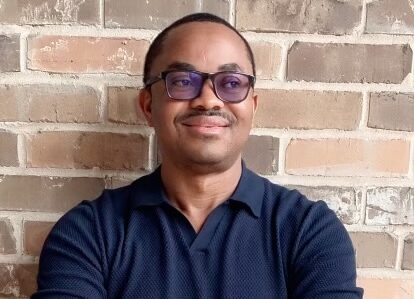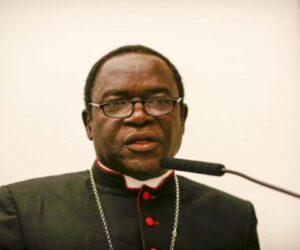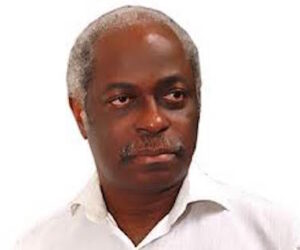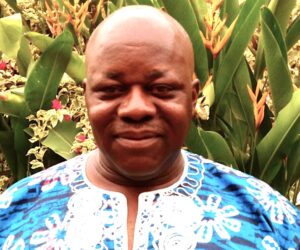
…as I reflect on the life and work of Dapo Olorunyomi, I return to that image of the Ijele, the grand masquerade of my Igbo heritage. The Ijele is not merely seen; it is experienced. Its presence fills the air, its movement stirs the soul, and its majesty defies complete description. That is Dapsy. To encounter him is to stand before something larger than the individual, a living embodiment of courage, intellect, and moral clarity.
Like John the Baptist, who confessed himself unworthy to even loosen the sandals of the one he proclaimed, I find myself hesitant to speak of the man his friends fondly call “Dapsy.” Though our paths have crossed and his legend had already filled the air before his presence ever did, I remain unsure that words are sufficient vessels for a soul such as his.
But then, it dawned on me that perhaps this inadequacy is not mine alone. For how does one describe Ijele, the great masquerade of Igbo lore? Vast, resplendent, and mysterious, no single eye can take in its full majesty. Each witness beholds only a fragment of its grace. So it is with Dapo Olorunyomi, the Ijele of Nigerian journalism, a man too large for any single telling, whose life and work shimmer with courage, intellect, and truth.
Perhaps that was why, on that warm afternoon in November 2017, when Dapsy turned sixty, the crème de la crème of Nigeria’s civil society and media world converged on the Yar’Adua Centre in Abuja. They came not merely to celebrate a birthday, but to pay homage to a man many regard as the father of investigative journalism in modern Nigeria; a craftsman of truth whose pen has both unsettled tyrants and inspired generations.
That gathering was to launch a remarkable 400-page compendium titled, Testimony to Courage, curated by Chido Onumah and Frederick Adetiba. The book assembled the voices of Nigeria’s finest; media icons, public intellectuals, captains of industry, all testifying to the many-sided brilliance of this man of a thousand hues. Even President Tinubu, then APC national leader, captured it succinctly, when he said:
“Dapo’s life is a chronicle of events, the marriage of journalism and activism, a journey through valleys of struggle and mountaintops of triumph. His tribe of journalists, and they are few, brought an intellectual gravitas to the profession.” He is right.
He was the heartbeat of guerrilla journalism that defined the dark years of Abacha’s military junta. When the murderous general tightened his iron grip on Nigeria, Dapo and his comrades refused to bow. They held the line, exposing the regime’s crimes, while giving voice to the silenced and the damned. For his defiance, the junta branded him an enemy of the state; a man to be hunted.
My own encounter with Dapsy came through another remarkable soul, my brother and friend, Chido Onumah. It was Chido who first introduced me to Dapsy – a meeting that, in hindsight, felt less like an introduction and more like an initiation into a sacred brotherhood of truth-seekers. At the time, I was a budding writer still searching for a voice that could carry on the national stage. Dapo Olorunyomi, with the quiet generosity of a man who measures greatness not by possessions but by the doors he opens for others, handed me that voice. Through PREMIUM TIMES, arguably Nigeria’s most authoritative online newspaper, he gave me a platform, a home for my thoughts, and the courage to speak them.
A few years down the road, when Chido and I began to toy with the idea that would later become Ikenga Media, Dapo was there again, as a mentor, midwife, and visionary guide. His belief in the power of truth-telling and deep faith in the transformative role of journalism became the bedrock on which that dream was built.
But Dapo’s story began long before that. Born in 1957 in the ancient northern city of Kano, to a military officer and public administrator father, he embodied from birth what many in the past described as a pan-Nigerian spirit; a man at home everywhere in his country. His education took him from Kano to Zaria, Ilorin, and finally to the University of Ife (now Obafemi Awolowo University), where he earned a B.A. in English and an M.A. in Literature.
He was the heartbeat of guerrilla journalism that defined the dark years of Abacha’s military junta. When the murderous general tightened his iron grip on Nigeria, Dapo and his comrades refused to bow. They held the line, exposing the regime’s crimes, while giving voice to the silenced and the damned. For his defiance, the junta branded him an enemy of the state; a man to be hunted. His wife, Ladi, herself a fearless journalist and women’s rights advocate, was thrown into detention for sixty-eight harrowing days without charge. Dapo vanished into the shadows, living like a fugitive in his own country, changing sleeping holes each night, until exile became his only refuge in 1995.
While in the US, he never stopped fighting. As Director of Africa Programs at Panos Institute, Washington, Dapo continued to champion media ethics, diversity, and freedom. He spoke out at global platforms, including the Committee to Protect Journalists, exposing the brutality of the Abacha regime.
Each of us who has crossed his path has glimpsed only a part of his vastness; one sees the activist, another the scholar, yet another the mentor or friend. But together, our fragments form a portrait of a man whose life remains a moving testament to the power of truth. Like the Ijele, his dance continues, graceful, defiant, unforgettable, reminding us all that integrity, once chosen, must never retreat.
When democracy returned, so did Dapo. He founded the Wole Soyinka Centre for Investigative Journalism (WSCIJ)in 2005, an institution that has since trained and inspired generations of truth-seeking journalists. He later co-founded PREMIUM TIMES, redefining investigative journalism in the digital era, and launched the Premium Times Centre for Investigative Journalism (PTCIJ) to promote media integrity, open data, and civic technology across West Africa.
His intellectual and professional pedigree is global. He has been a Freedom to Write laureate, a Hellman-Hammett grantee, and the recipient of the Press Freedom Award and the International Editor of the Year Award.
He has served as chief judge for the Zimeo Award and on the board of the Norbert Zongo Cell for Investigative Journalism, an initiative of the UNODC.
I must confess, I once worried that Dapsy’s long history and closeness with the Oga at the top and others in this government might temper his fire, that his truth-telling voice might become another casualty of proximity. But I was wrong. Through his visionary leadership at PREMIUM TIMES, he has continued to champion accountability and speaking truth to power, even when that truth unsettles his friends. In a country where compromise often wears the face of wisdom, Dapo Olorunyomi remains proof that integrity can survive influence and that conviction, when deeply rooted, does not bow before convenience.
And so, as I reflect on the life and work of Dapo Olorunyomi, I return to that image of the Ijele, the grand masquerade of my Igbo heritage. The Ijele is not merely seen; it is experienced. Its presence fills the air, its movement stirs the soul, and its majesty defies complete description. That is Dapsy. To encounter him is to stand before something larger than the individual, a living embodiment of courage, intellect, and moral clarity.
Each of us who has crossed his path has glimpsed only a part of his vastness; one sees the activist, another the scholar, yet another the mentor or friend. But together, our fragments form a portrait of a man whose life remains a moving testament to the power of truth. Like the Ijele, his dance continues, graceful, defiant, unforgettable, reminding us all that integrity, once chosen, must never retreat.
May he continue to be the conscience of the profession, a man whose pen is both scalpel and torch.
Osmund Agbo is a medical doctor and author. His works include Black Grit, White Knuckles: The Philosophy of Black Renaissance and a fiction work titled The Velvet Court: Courtesan Chronicles. His latest works, Pray, Let the Shaman Die and Ma’am, I Do Not Come to You for Love, have just been released. He can be reached through: [email protected]









